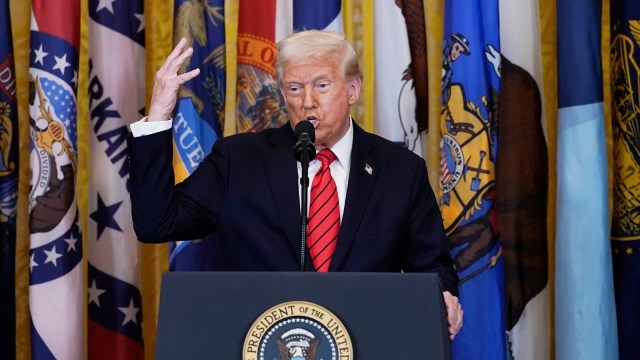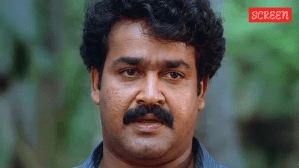US President Donald Trump Tuesday said the US will bring down tariffs on India, and that Washington is “pretty close” to reaching a “fair trade deal” with New Delhi. India currently faces 50 per cent tariffs, the highest on any country globally, primarily due to the ‘penalty’ duty of 25 per cent for purchasing Russian oil.
“Right now, the tariffs are very high on India because of the Russian oil, and they [India] have stopped doing the Russian oil… It’s being reduced very substantially. Yeah, we will bring the tariffs down at some point,” Trump said during a White House press briefing.

In New Delhi, government officials said they do not see the need for further negotiations, and that the two countries have been drafting the legal text of the deal since October.
“Talks are progressing well between the two sides, and India and the US are negotiating a comprehensive, WTO-compliant trade agreement. India has kept in mind each sensitive sector in the talks. We don’t see the need for any more rounds of negotiations with the US and are now awaiting a response to India’s trade deal proposal,” the official said.
India was one of the first countries to start discussing a trade deal with the US in February after Prime Minister Narendra Modi visited the US. The officials said they are hopeful that after the last few months of push and pull, India and the US may finally sign the trade deal.
On India’s efforts to diversify exports, the official said India and New Zealand are also near finalisation, and New Zealand Trade Minister Todd McClay will visit India on Friday. The official said talks are progressing, and EU Trade Commissioner Maros Sefcovic is also expected to visit India in the second week of December for trade talks.
Meanwhile, Commerce and Industry Minister Piyush Goyal said India will not compromise the interests of farmers, dairy producers, and workers in trade deals. He said India is looking for new markets, such as Russia, for the country’s fishery sector, which is facing issues due to the steep tariffs in the US.
Story continues below this ad
“We are working for a good trade deal. India is not going to compromise the interests of farmers, dairy and workers… We are working on a fair, equitable and balanced trade deal,” he said at an industry event Tuesday.
ExplainedThe final lap
India and US have started working on the text for the draft trade agreement. Delhi believes there is no need for another round of talks. Since almost 25% of the tariffs on India is due to Russian oil, Delhi hopes final tariffs will not be more than 15-20%.
“We want a fair, equitable and balanced trade deal (with the US). If that happens, it could happen any day, it could happen tomorrow, it may happen next month, it may happen next year… But as a government, we are preparing for everything,” he said.
After the US and China dialled down tensions last month, the focus shifted firmly to India, which Washington has long seen as a counterweight to Beijing’s influence in the region. Trade experts said India needs to target a 15 per cent tariff concession in line with what the UK and Japan have received, as Indian products may not be competitive compared to Chinese goods, even with a 20 per cent difference in tariffs with the neighbour.
The 15 per cent tariff rate would also be ideal for India because the US has kept tariffs at 20 per cent on Vietnam and 19 per cent on ASEAN countries such as Malaysia and Cambodia. ASEAN and India are the two regions seen as part of the “China plus one” strategy for global companies.
Story continues below this ad
A lower rate compared to Vietnam is especially crucial for India, as Vietnam is rapidly boosting goods exports and, at its current growth rate, could surpass India’s total goods exports despite being a much smaller country.
India is expected to step up energy imports from the US. This could also help New Delhi secure a more favourable tariff rate of between 15 per cent and 20 per cent. However, the ongoing US Supreme Court case could impact the dynamics if the Trump administration loses.
Commerce Minister Piyush Goyal had said in September India is a large importer of energy and that its energy security goals will have a “very high element” of US involvement in the years to come. Expressing interest in Small Modular Reactor (SMR) innovations in the US, Goyal said that both countries will also continue to work together in the nuclear energy sector going forward.

































